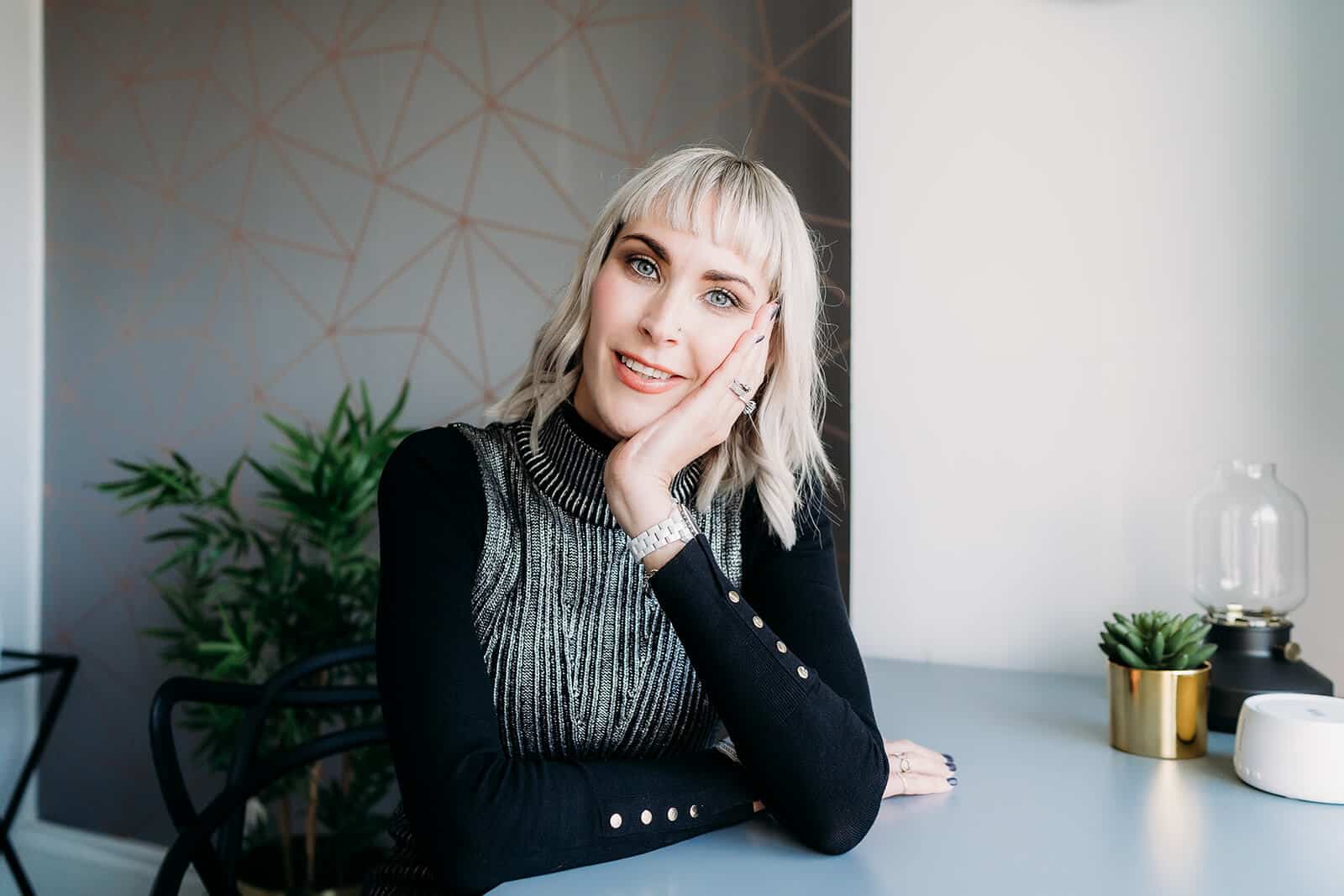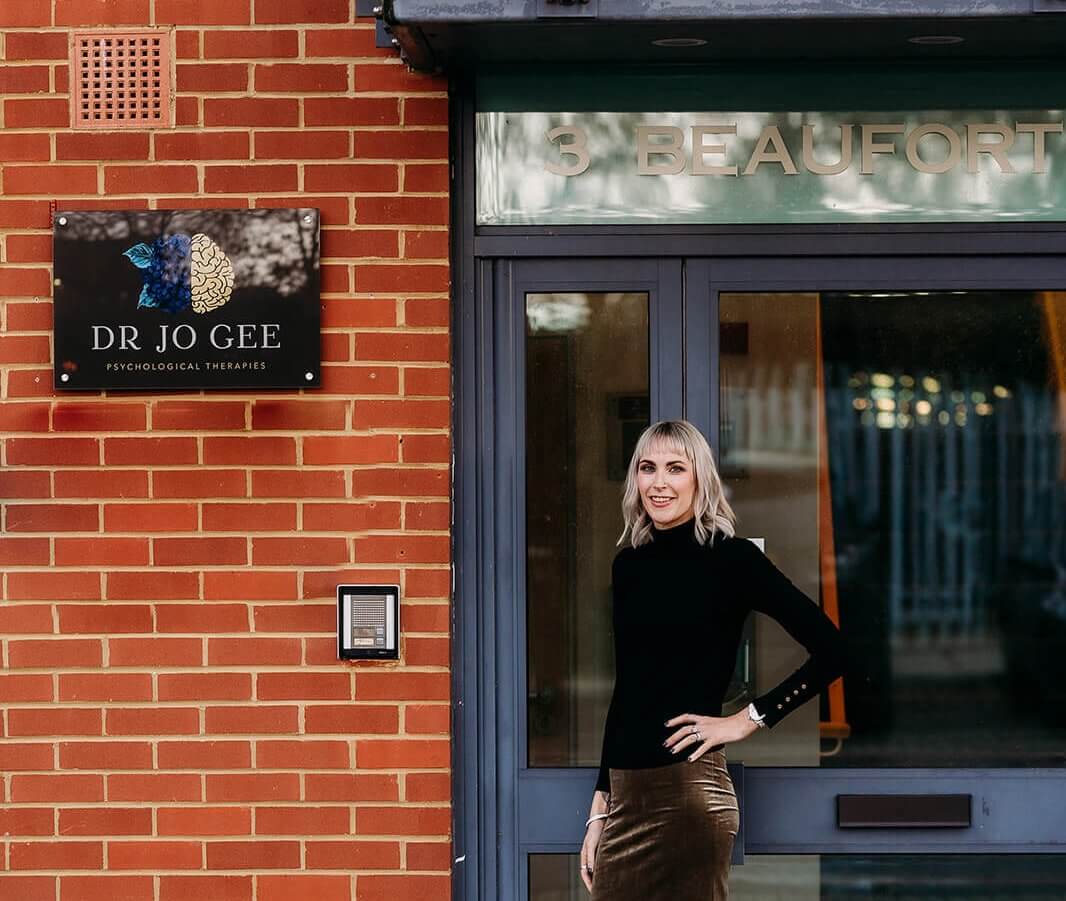
Dr Jo Gee Psychological Therapies
Treatment for OCD
Online & in Surrey
These behaviours aim to reduce anxiety and distress, but they can actually heighten anxiety and feelings of unease, creating a cycle of prolonged suffering that’s hard to escape.
While many with OCD exhibit signs of both obsessive and compulsive behaviour, it’s possible to have only one or the other. Pure O, a subtype of OCD, involves distressing intrusive thoughts but without obvious outwards behaviours, as the rituals are often mental. Magical thinking is another common aspect of OCD, where people believe their thoughts or actions can alter real-world events.
OCD often begins in adolescence or early adulthood, though it can also develop as early as childhood. It can go hand in hand with other disorders, such as depression or anxiety. While some experts believe OCD is caused by imbalances in brain chemistry, others think environmental factors may play a part. Symptoms can be subtle at first and easy to miss, but they may gradually develop and impact a person’s daily life if left untreated.
Find out more about our therapy for OCD in Guildford and online by getting in touch and booking your free 15 minute consultation.
Common OCD Obsessions
Common OCD Compulsions
“From start to finish, it taught me so much about myself.”
“Thank you for challenging me when I needed it.”
“I can’t believe how much progress I’ve made in a short time.”
“After many years of therapy, you are the first person who gets me.”
Our expert team provides specialised OCD treatment from our online clinics and OCD therapy clinic in Guildford, Surrey.
There’s no shame in asking for help – it’s a sign of strength. If any of the signs below resonate with how you feel, it might be a good time to talk to a mental health professional. As a general rule with any health condition, it’s important to seek advice if your life is drastically impacted by it.
Problematic signs of OCD that require support include:
At Dr Jo Gee Psychotherapy, your wellbeing is our top priority. We offer psychotherapy for OCD online and CBT for OCD in Guildford, Surrey.
Our handpicked team of professionals is here to guide you through every step of the process to feeling better in your own skin and living your best life.
Our standard approach to treating OCD is Cognitive Behavioural Therapy (CBT), a talking therapy which has been proven to be effective in treating disorders like OCD. Key benefits of CBT include:
Ready to book your appointment? Please press the button below to see our online availability. Can’t see what you need, then don’t hesitate to send a message via the contact form below or call or email our offices.
Whatever your current struggle, we’re here to help.
We offer online psychiatry, psychology, counselling and psychotherapy appointments. Contact us for a free 15-minute phone discussion to ask any questions you might have.
Many of our appointments can be conducted online if that’s preferable or easier for you.
For clinic appointments, we work from 3 Saxton Parklands, Guildford, Surrey, GU2 9JX.
Clients visit us from several nearby locations, including Addlestone, Aldershot, Ashford, Bisley, Camberley, Chertsey, Chobham, Cobham, Cranleigh, Dorking, Egham, Epsom, Esher, Farnham, Farnborough, Fleet, Godalming, Guildford, Haslemere, Horley, Horsham, Kingston, Leatherhead, Lightwater, Oxshot, Redhill, Reigate, Richmond, Send, Shere, Staines-upon-Thames, Sunbury-on-Thames, Surbiton, Virginia Water, Walton-on-Thames, West End, Weybridge, Windlesham and Woking.
Message or call us now to book an initial consultation.
ADDRESS
DJGP
3 Saxton Parklands
Guildford
GU2 9JX
ADDRESS
Guildford Therapy Rooms
3 Beaufort Parklands
Guildford
GU2 9JX
Hours
Monday – Friday: 9.00am – 9.00pm
